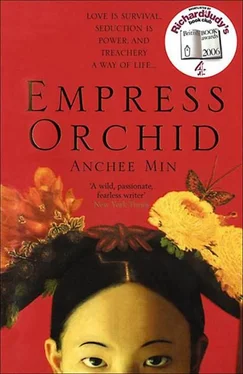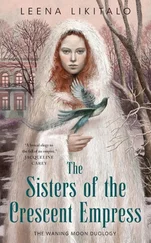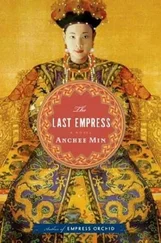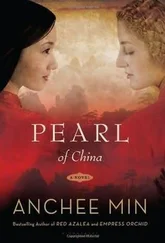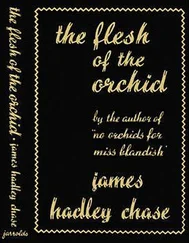The laughter shot up to the ceiling.
“Su Shun.” Prince Kung’s voice was dangerously low. “I am not asking much. And I am asking for the last time. I want to see my sisters-in-law and my nephew.”
“You are not going through that door.”
I sensed that Prince Kung was running out of patience. I pictured him pushing Su Shun away. I grabbed Tung Chih and whispered in his ear.
“The Emperor invites his uncle…” My son repeated what I had instructed: “The Emperor invites his uncle Prince Kung to enter the Imperial coffin room. The Emperor also grants permission for Prince Kung to pay respects to Her Majesties the Empresses.”
Upon hearing Tung Chih’s voice, Li Lien-ying, my young eunuch, ran out. He threw himself on the floor between Prince Kung and Su Shun. “Your honored grand councilor, His Majesty Emperor Tung Chih has summoned Prince Kung!”
“Would any of the grand councilors like to accompany me to meet His Majesty and Her Majesties?” Prince Kung turned to Su Shun. “So you can make sure that everything we say or do is appropriate?”
Before Su Shun could respond, Prince Yee, who must have felt that it was his turn to speak, said, “Proceed, Prince Kung, you are the person His Majesty has summoned.”
We lost our words when we saw each other’s white gowns. Tung Chih threw himself at his uncle, who in turn got down on his knees and kowtowed. Watching them on the floor, Nuharoo and I cried freely.
“It has not been peaceful here,” Nuharoo finally said. “We fear-”
I stopped her from speaking further. I hinted that Su Shun and his men were listening behind the wall.
Nuharoo nodded and sat back in her chair.
“Summon the monks,” I said to Li Lien-ying.
Under the cover of the monks’ chanting, Prince Kung and I exchanged information and discussed future plans. We plotted a counter-attack against Su Shun while Nuharoo went off to keep Tung Chih entertained. I was shocked when Prince Kung told me that Su Shun had bribed the military. We both agreed that he had to be eliminated.
My questions were: If we arrested Su Shun, would we have the support of the nation? Would the foreigners take advantage of the ensuing chaos and launch an invasion?
Prince Kung felt confident about receiving the necessary support, especially if the country could be told the truth. As for the Western powers, he had been in constant contact with them. He had let the foreigners know that he envisioned a freer society for China’s future, which had secured their promise of support.
I asked Prince Kung for his thoughts about the Taiping rebels. I be-lieved that they could easily become a serious threat if we even momentarily let our guard down. I told him that according to reports from Anhwei alone, the Taipings had united with local hooligans and had been pushing their forces toward Shantung province.
Prince Kung informed me that Generals Sheng Pao and Tseng Kuofan had already made arrangements regarding the matter.
How committed were the generals, I wanted to know. I dared not assume that everyone would behave the way they were expected to. I understood the power of Su Shun’s bribery.
“Sheng Pao is ready,” Prince Kung replied. “He asked to work with Seng-ko-lin-chin’s Mongol forces. I gave him permission. Seng-ko-linchin is eager to prove his loyalty and restore his name, and this will be his opportunity. I am not sure about the Chinese: General Tseng Kuofan and General Chou Tsung-tang view our conflict with Su Shun as a squabble among Manchu nobles. They believe it is wiser to stay out of it. They prefer to wait until there is a winner.”
“I despise people who bend with the wind,” Nuharoo said. I didn’t know she had reentered the room. “His Majesty was right about never trusting the Chinese!”
“For Tseng Kuo-fan and Chou Tsung-tang the situation may be more complicated,” I said. “We must be patient and understanding. If I were those generals, I would do exactly what they are doing. After all, Su Shun’s power cannot be denied, and to offend him is to risk one’s life. We are asking people to turn their backs on Su Shun, so we should allow the generals time to weigh their thoughts.”
Prince Kung agreed. “Tseng and Chou are leading the fight against the Taipings. Although they haven’t expressed any support for us, they haven’t promised anything to Su Shun either.”
“We’ll wait, then,” Nuharoo said. “I just don’t feel comfortable that our military power is in the hands of the Chinese. When we have achieved peace, we should remove them or at least keep them away from the highest positions.”
I disagreed, but said nothing. As a Manchu I naturally felt more secure with Manchus in the top military positions. And yet there were few men of talent among the princes and clansmen. After two hundred years in power, we had degenerated into decadence. The Manchu nobles spent their time reveling in past glory. All they really knew was that they were entitled to prestige. Luckily, the Chinese had always gone along with it. The Chinese honored our ancestors and graced us with their blessings. The question was, how long would it last?
“I am leaving tonight,” Prince Kung said, “although I told Su Shun I would stay till tomorrow.”
“Who will be here to protect us when we move the coffin from Jehol to Peking?” Nuharoo asked.
Lowering his voice, Prince Kung said, “I’ll be in control. Your job is to act as normal as possible. Don’t worry. Prince Ch’un will be around.”
Prince Kung warned us to expect Su Shun’s anger. He wanted us to be prepared to receive a document submitted by a provincial inspector of justice named Tung Yen-ts’un. It would publicize Su Shun’s flaws and call Nuharoo and me “the people’s choice.” Prince Kung wanted us to keep in mind that by the time Su Shun got hold of Tung’s document, it would already have been reviewed by statesmen all over the country. Prince Kung revealed no details. I could tell he was afraid that Nuharoo wouldn’t be able to keep her mouth shut if Su Shun happened to ask.
We parted.
Before dinner, Nuharoo came to my quarters with Tung Chih. She felt unsafe and wanted to know if I had seen anything unusual. I noticed that Prince Kung’s visit had put Su Shun on guard. More security had been added to the outer courtyard before the gate was locked for the night. I told Nuharoo to go out and smell the fragrant laurel in the garden or visit the hot spring. She said that she didn’t feel like doing either. To calm Tung Chih I picked up embroidery and asked Nuharoo to shed some light on the design. We sewed and chatted until Tung Chih fell asleep.
I prayed for Prince Kung’s safety. After I sent Nuharoo and Tung Chih to my guest room to sleep, I went to my own bed. My eyes were afraid to close.
A few days later Tung Yen-ts’un’s document arrived. Su Shun was enraged. Nuharoo and I read it after Su Shun reluctantly passed it on to us. We were secretly pleased.
The next day Su Shun’s men launched a counterattack. Historical examples were used to convince the court that Nuharoo and I should retire from the Regency. At the audience Su Shun’s men spoke one after another, trying to create fear in us. They badmouthed Prince Kung. They accused Tung Yen-ts’un of disloyalty and called him a puppet. “We must cut off the hand that pulls the strings!”
Prince Kung expected me to remain silent, but Su Shun’s negative portrayal of him was having an effect among the court members. It would be fatal to allow Su Shun to dwell on the fact that Emperor Hsien Feng had excluded Prince Kung from his will. People had been curious about the reason, and Su Shun was feeding them his own interpretation.
With Nuharoo’s permission I reminded the court that Su Shun would have stopped Emperor Hsien Feng from naming Tung Chih as the successor if I hadn’t approached the deathbed myself. Su Shun was responsible for the strained relations that had existed between Hsien Feng and Prince Kung. We had strong reason to believe that Su Shun had manipulated the Emperor in his last days.
Читать дальше
